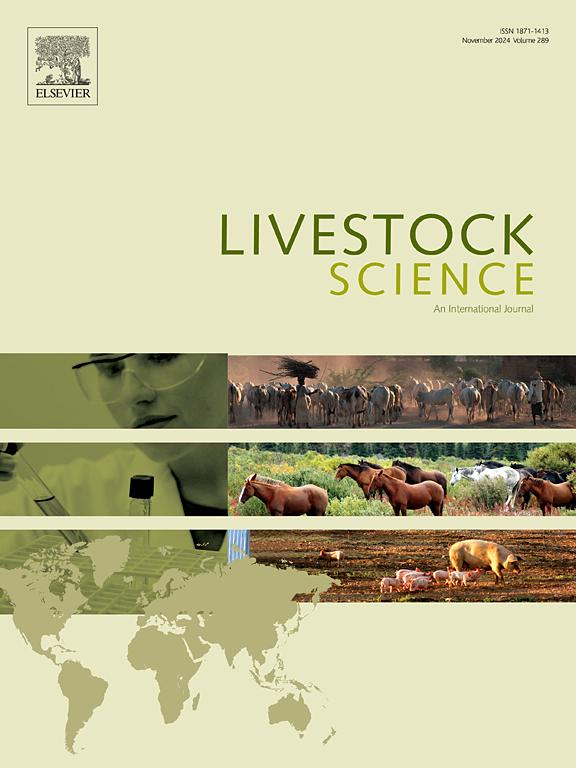猪鸡日粮中的地中海农工副产品和食物垃圾:何去何从?
IF 1.9
3区 农林科学
Q2 AGRICULTURE, DAIRY & ANIMAL SCIENCE
引用次数: 0
摘要
地中海国家产生大量食物垃圾,主要来自餐饮业和旅游业,以及农业部门的农工副产品(AIBP)。这为通过在动物日粮中安全回收利用农工副产品和食物垃圾来提高饲料自给率和减少饲料价格变化提供了机会。本文以地中海地区为重点,回顾了通过猪和鸡回收食物垃圾和 AIBP 的可持续经济潜力,强调了在社会、环境和经济可持续性之间寻求最佳平衡的背景下改造食物生态系统的必要性。本综述涉及的与猪和家禽的抗氧化作用和产品质量有关的典型地中海 AIBP 包括柑橘、葡萄酿造(如葡萄渣)、橄榄和石榴副产品。有关这些副产品的动物研究非常有限,尤其是它们对动物转录组的影响。鉴于其中一些副产品富含脂肪酸,可能会影响最终动物产品的质量,因此有可能将食物垃圾用于动物饲料中。在动物日粮中再利用富含抗氧化剂的 AIBP 或其提取物和食物垃圾,不仅有可能保持经济的可持续发展,还能生产出具有附加值的食品。本文章由计算机程序翻译,如有差异,请以英文原文为准。
Mediterranean agro-industrial by-products and food waste in pig and chicken diets: Which way forward?
Mediterranean countries produce large quantities of food waste mainly from the hospitality sector and the tourism industry as well as agro-industrial by-products (AIBP) from the agricultural sector. This provides opportunities to increase self-sufficiency of feeds and reduce variability of feed prices by safely recycling AIBP and food waste in animal diets. This article reviews the sustainable economy potential of food waste and AIBP via pigs and chicken focusing on the Mediterranean area underlining the need to transform the food ecosystem in the context of finding the optimal balance between social, environmental, and economic sustainability. Typical Mediterranean AIBP covered in this review in relation to antioxidant effects and product quality of pigs and poultry include citrus, vinification (e.g., grape pomace), olive, and pomegranate by-products. Animal studies on these by-products are limited, especially their effect on the animal transcriptome. There is potential for food waste use in animal diets given that some of them are rich in fatty acids and may affect final animal product quality. The reuse of AIBP or their extracts rich in antioxidants and food waste in animal diets has the potential not only to maintain sustainable economy but also to produce foods of added value.
求助全文
通过发布文献求助,成功后即可免费获取论文全文。
去求助
来源期刊

Livestock Science
农林科学-奶制品与动物科学
CiteScore
4.30
自引率
5.60%
发文量
237
审稿时长
3 months
期刊介绍:
Livestock Science promotes the sound development of the livestock sector by publishing original, peer-reviewed research and review articles covering all aspects of this broad field. The journal welcomes submissions on the avant-garde areas of animal genetics, breeding, growth, reproduction, nutrition, physiology, and behaviour in addition to genetic resources, welfare, ethics, health, management and production systems. The high-quality content of this journal reflects the truly international nature of this broad area of research.
 求助内容:
求助内容: 应助结果提醒方式:
应助结果提醒方式:


